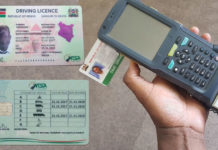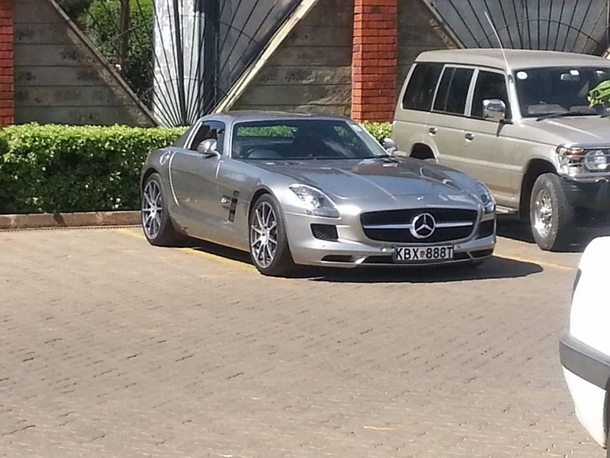By NEVILLE OTUKI, [email protected] AND KIARIE NJOROGE, [email protected]
IN SUMMARY
- NTSA director-general Francis Meja said the electronic payment platform is particularly important for the effort which besides saving motorist the pain of going to court aims to cut the flow of bribes to the pockets of corrupt traffic policemen.
- A fine of Sh7,000 will apply to those driving without a valid driving licence in respect of the class of vehicle they are trained for while those who fail to renew their driving licences will part with a Sh1,000 fine.
Motorists who commit minor traffic offences such as talking on the phone while driving or exceeding speed limits will from January pay instant fines of between Sh500 and Sh10,000 as part of fresh efforts to reduce corruption and restore sanity on Kenyan roads.
The motorists will also no longer be arrested, have their vehicles towed to police stations or pay fines in cash, blocking the common avenues traffic police officers and court officials use to collect bribes.
The list of minor violations and their corresponding fines published by the National Transport and Safety Authority (NTSA) includes speeding, motorcycle riding without protective gear, failing to produce a driving licence when asked to do so by a uniformed police officer and failure to fasten seat belts.
Offenders will no longer be required to go to court but will instead pay instant fines using mobile money and get a standard receipt for it.
No cash will be accepted.
NTSA director-general Francis Meja said the electronic payment platform is particularly important for the effort which besides saving motorist the pain of going to court aims to cut the flow of bribes to the pockets of corrupt traffic policemen.
“Payment of instant fines will come into force in January after the Transport secretary gazettes them,” Mr Meja told the Business Daily yesterday, adding that the mobile payments are also expected to boost government revenue.
If the rules are gazetted, motorists will pay Sh500 for exceeding the speed limit set for their vehicles by between one and five kilometres per hour (kph).
Exceeding the set speed limit by between six and 10 kph will attract a Sh3,000 fine while motorists who exceed the limit by between 11 and 15 kph will pay Sh6,000.
The NTSA will levy Sh10,000 on motorists exceeding speed limits by between 16 and 20 kph. The same fines and range by which motorists exceed the 50 kph maximum speed limit on roads in urban towns as indicated by signs will apply.
The new rules have not spared pedestrians who will pay Sh500 for “obstructing free passage of vehicles,” – a rule that is seen to discourage crossing of roads at non-designated places.
Currently, motorists caught with traffic offences must face the courts, a process that is seen as time-consuming and encouraging the offenders to bribe the police in order to avoid the inconvenience.
Section 117 of the Traffic Act allows payment of instant fines but has yet to take effect because offences had not been specified and corresponding penalties fixed.
Owners of vehicles that do not have safety belts or with non-functioning ones will pay a Sh1,000 fine per seat — a penalty that is seen to be targeting public service vehicles.
Failure to fit passenger vehicles with speed governors will attract a Sh10,000 fine while passengers travelling in a vehicle with seat belts but fail to fasten them will be charged Sh500.
The NTSA rules also provide for a Sh1,000 fine on people who leave any part of their body outside a moving vehicle, a rule that is expected to tame touts who regularly travel hanging on the doors of public vehicles.
Motorcycle riders operating without protective gear will be liable for a fine of Sh1,000 same as those found carrying more than one passenger.
Mr Meja said that the transport agency had liased with the Judiciary, the Attorney-General and the police service in drafting the rules.
He said that a lot of time and resources are wasted by minor traffic offenders, the police and the court in prosecution, an anomaly that instant traffic fines should help cure.
“It is not uncommon for an offender to spend an entire morning at the law courts only to be slapped with a fine of Sh500 for a minor offence,” said Mr Meja.
This inconvenience and the fear of courts have had the effect of encouraging payment of bribes to the police.
Valid license
Those who contest crimes they are accused of committing will pay an instant fixed amount for bail pending their day in court. A fine of Sh7,000 will apply to those driving without a valid driving licence in respect of the class of vehicle they are trained for while those who fail to renew their driving licences will part with a Sh1,000 fine.
“This process would be convenient, cost-efficient and transparent for all the parties involved, and should materially discourage corruption,” Mr Meja said.
Offenders will be required to fill four similar forms and remain with a copy. A copy of the forms will remain in the offender’s book while the other two will be issued to the NTSA and police for credibility.
Driving on a pavement or pedestrian walkway or footpath will attract a fine of Sh5,000 while causing obstruction on the road with a vehicle attracts a Sh10,000 fine.
In countries like the United States and the United Kingdom, one can pay electronically or in cash at the court clerk’s office after being issued with an offence ticket. In New Zealand, an infringement ticket includes the fee and the date when it is due.
The NTSA’s publication of the instant fees structure comes two months after Chief Justice Willy Mutunga visited and unearthed a corruption scam at Nairobi’s Kibera law courts. The racket involved police officers issuing parallel payment receipts for minor offences and pocketing the loot.
The targets were motorists who do not wish to be presented in court.
Dr Mutunga said the cartels had set up parallel “courts” outside the law courts, blocking traffic offenders from prosecution. He said the government was losing millions of shillings in revenue as fines and bail ended up lining the pockets of law enforcers and brokers.
In March, the Transport ministry published regulations requiring motorcycle taxis (boda bodas) to have commercial third party insurance cover to compensate their passengers, pedestrians and other motorists in the event of an accident.
The rules also required boda boda operators to join saccos and provide passengers with helmets and reflective jackets.
Source: http://www.businessdailyafrica.com/





![Sonko’s Free Stretch Limos for Weddings Were Busy This Weekend [PHOTOS]](../../../blog/wp-content/uploads/2015/01/Stretch-wedding-limmos-1.jpg)
![Top 20 Used Cars to Avoid Buying in Kenya – [PHOTOS]](../../../blog/wp-content/uploads/2013/11/top-used-unreliable-cars-to-avoid2-100x70.jpg)







